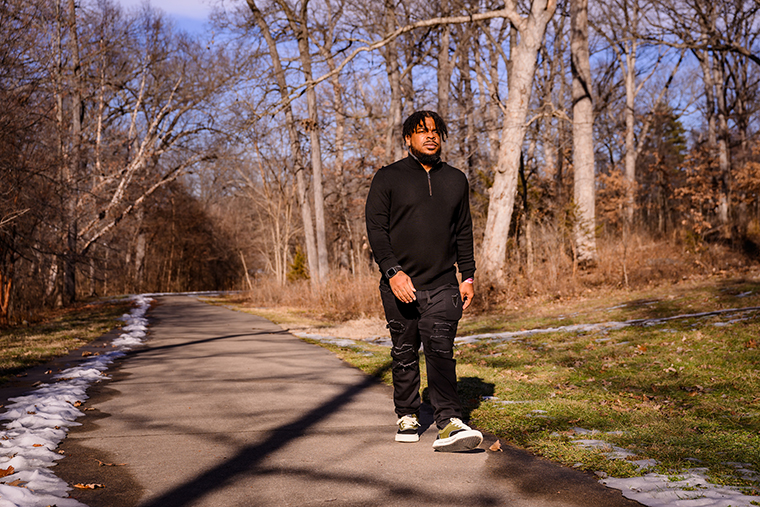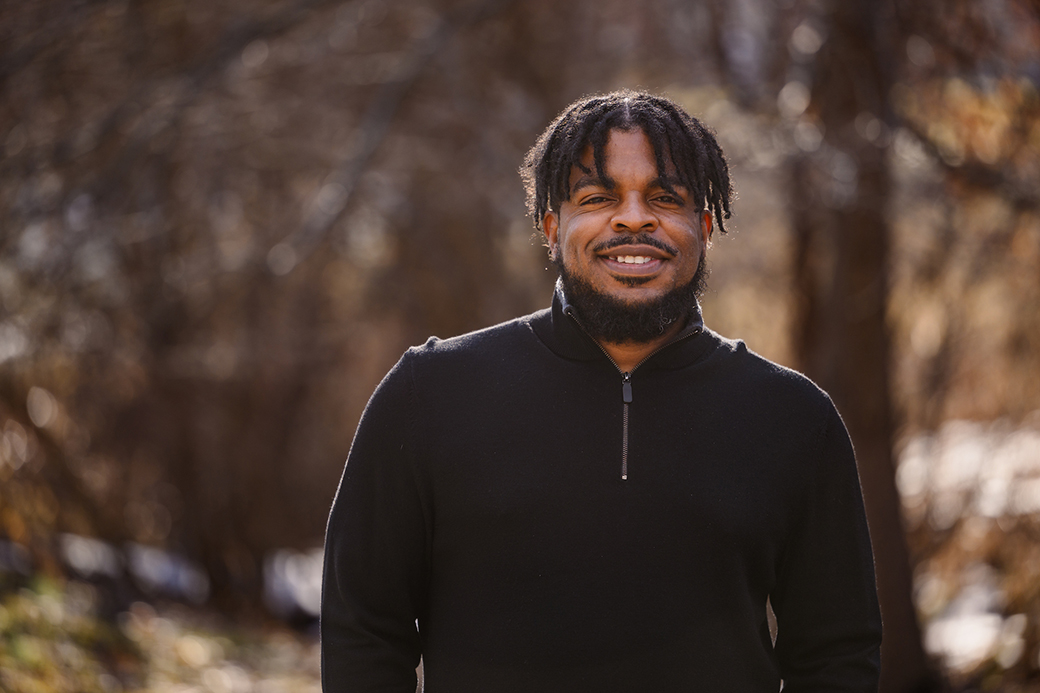Shawn Nesbitt was in the middle of a heart attack for nearly six hours without knowing it.
The 40-year-old Jefferson City resident woke up in the early hours of August 18, 2023, with an odd, tingling feeling in his arm. Then, pressure from what felt like someone pushing hard against his chest started to build.
“It sounds silly, but when I thought of heart attacks, it was Fred Sanford of ‘Sanford and Son,’ clutching his chest for the big one,” Shawn said. “In my mind, that’s how a heart attack happened. It didn’t click that I was having a heart attack.”
His mind went elsewhere first: It could be soreness from the gym that day, or an infection like flu or COVID-19. Maybe it was a panic attack, something Shawn had experienced before.
But as he started feeling nauseous, and then vomiting, the pieces started to come together. Looking at his mom’s obituary on the living room mantle, Shawn remembered that she had suffered a heart attack a few years before she passed and told him she was nauseous and vomited during her heart attack.
“My mom’s voice clicked in my head, so I looked up the symptoms of a heart attack on my phone and they were all right there,” Shawn said.
He and his wife went to urgent care early in the morning. There, a nurse performed an electrocardiogram and told him he was in the middle of a heart attack and he needed to get to the ER immediately.
Shawn’s wife drove him to the Capital Region Medical Center ER. When they arrived, MU Health Care cardiologist Sostanie Enoru, MD, was standing by the reception desk waiting for them.
“That was when it really hit me that this must be serious,” Shawn said.
Diagnostic scans showed one of Shawn’s arteries was completely blocked, and another was 80% blocked. He was in the middle of a widow-maker heart attack.
“Shawn was experiencing the classic symptoms of a heart attack,” Enoru said. “For his symptoms, particularly chest pain, it’s important to go to the ER first so that if you are having a heart attack, you can get the quick, appropriate care you need.”
Capital Region Medical Center is accredited as a Missouri STEMI Center and a Primary Heart Attack Center by the Joint Commission. That means there are systems in place for doctors, nurses and staff to clear blocked arteries less than 90 minutes after a patient arrives.
Shawn’s care team used a tiny cut in the outside of his right wrist to guide a catheter to his blocked arteries. They cleared the blockages and placed stents to make sure the arteries would stay open.
The experience was a wake-up call for Shawn. After leaving the hospital a few days later, he completely changed his life, starting with cardiac rehab three days a week for 14 weeks.
“I quit drinking. I walk or do something active every day now,” Shawn said. “My diet has completely changed. I cut out red meat. I was a smoker for 20 years, but the last cigarette I smoked was August 18, 2023. During rehab they kept checking if I had any problems quitting, but when you almost die, there are a lot of things you can stop doing.”

For Enoru, Shawn’s condition is a good example of why knowing the symptoms of a heart attack and understanding your risk level is important. It can save your life, or the life of a loved one.
“Shawn is young, which is unique about his case,” Enoru said. “These problems aren’t the first thing younger people think of when they feel chest pain or other symptoms. But these symptoms are serious, and it’s important to take them seriously.”
Enoru encourages everyone to exercise regularly, eat well and get good sleep, all of which can address heart health risk factors such as high blood pressure and cholesterol levels. Annual checkups are important for discussing those risk factors, as well as family history, so you and your provider can address any concerns.
“It’s important to listen to your body,” Enoru said. “Thankfully, Shawn is in a good position to be an advocate for people to take this seriously.”
Talking to others about heart health has become a core part of Shawn’s life. He knows he was lucky to survive and that he has more life to live.
“Even though it feels like we talk about it a lot, we don’t talk about heart health enough,” Shawn said. “I’ve lost family and friends to this. My daughter and son were about to start college. I knew that I couldn’t go now. It was really, really hard emotionally.”
Shawn also doesn’t want anyone else to go through what he’s been through. In the back of his mind, he will always remember the ones in his life he lost to heart attacks, including his father, his cousin and three best friends: Andrae Smith, Newt Johnson and Preston Wells.
“I got this second chance at life, and I’m not going to waste it,” Shawn said. “I’m doing everything I can to make sure this will not happen to me again. And I’m calling all my friends like, ‘Hey, you make your doctor’s appointment? Go see your doctor and make sure you exercise.’ I’m that friend now.”




